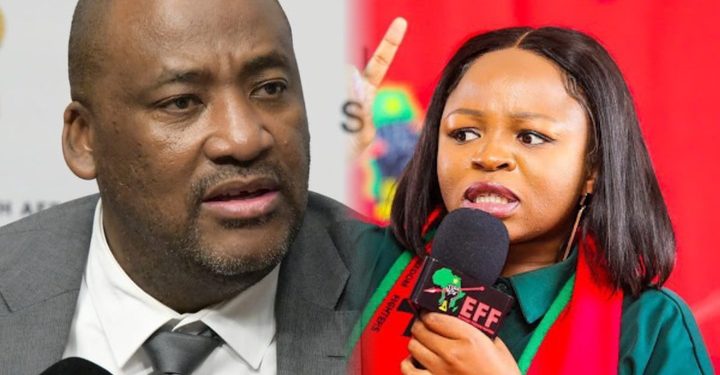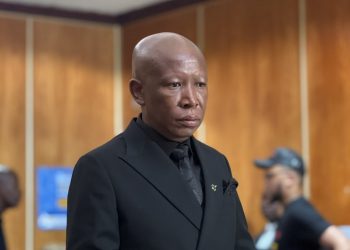- EFF MP Naledi Chirwa has launched a scathing attack on Patriotic Alliance leader Gayton McKenzie, calling him a “convicted thug” in response to his support of the government’s refusal to assist illegal miners trapped underground.
- McKenzie had applauded Minister Khumbudzo Ntshavheni’s hardline stance on the trapped zama zamas, but Chirwa criticized his position, drawing attention to his criminal past and questioning his moral authority on the issue.
- The debate over the government’s approach to the miners has divided public opinion, with some supporting the tough stance to deter illegal mining, while others argue it violates human rights.
A heated social media confrontation has erupted between EFF MP Naledi Chirwa and Gayton McKenzie, president of the Patriotic Alliance and Minister of Sports, Arts, and Culture. The dispute centers on McKenzie’s support for the government’s hardline stance on illegal miners trapped underground in Stilfontein, North West. Chirwa fired back at McKenzie, calling him a “convicted thug” in a scathing post that directly addressed his criminal past.
“Don’t forget that you’re a convicted thug, Gayton,” Chirwa wrote on social media. “You were not ‘smoked’ or denied food and water after your heinous crimes. You had a fair chance in a courtroom. You, like them, didn’t hand yourself in. Your business interests are blinding you. Talking with your mouth full.”
Don’t forget that you’re a convicted thug, Gayton. You were not “smoked” or denied food and water after your heinous CRIMES. You had a fair chance in a court room. You, like them, didn’t hand yourself in. Your business interests are blinding you. Talking with your mouth full. https://t.co/FCNx2soUHB
— Fighter 🇵🇸 (@NalediChirwa) November 13, 2024
The exchange comes after McKenzie praised Minister in the Presidency Khumbudzo Ntshavheni for her statement that the government would not assist the trapped miners, often referred to as zama zamas. McKenzie tweeted in support of Ntshavheni’s uncompromising position, saying, “Thank you, Minister Khumbudzo Ntshavheni. Let there be smoke, lots of smoke,” referencing the government’s plan to “smoke out” the miners from the abandoned mine shafts.
The debate has sparked a polarized public response. Some support the government’s tough stance, arguing it is necessary to discourage illegal mining operations, which are often associated with dangerous working conditions and criminal activity. Others, however, see it as a human rights violation, questioning the morality of leaving miners, who are often migrants working under perilous conditions, to suffer without aid.
Ntshavheni’s position is that providing assistance would be an unjustified use of resources, considering the dangerous nature of the environment and the illegal activities of the miners. She has emphasized that the government cannot afford to risk personnel or resources in such high-risk situations.
Chirwa’s sharp critique of McKenzie is rooted in his past criminal record. Having served time for crimes committed before entering politics, McKenzie has been a controversial figure, particularly for his hardline positions on crime and immigration. Chirwa’s attack suggests that McKenzie, given his own criminal history, lacks the moral authority to call for harsher treatment of the trapped miners.
The ongoing discourse about the zama zamas—illegal miners working in South Africa’s unregulated mining sector under hazardous conditions—has fueled intense debate about human rights, legal accountability, and the state’s moral responsibility. Amid growing concern for the miners’ wellbeing, the government’s refusal to provide assistance continues to provoke strong reactions across political and public spheres.






















